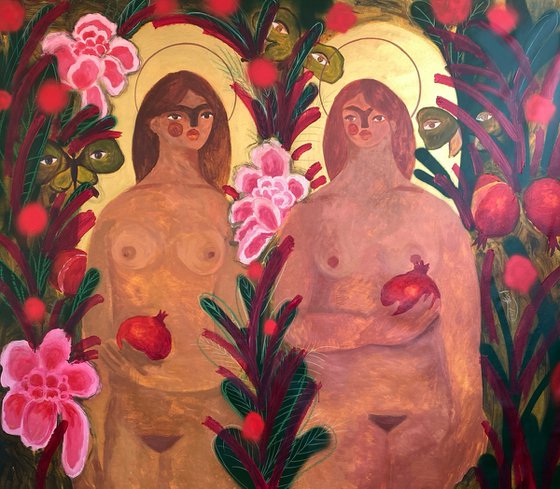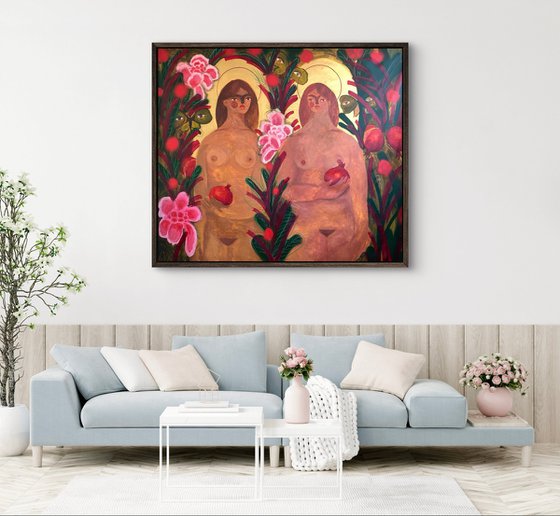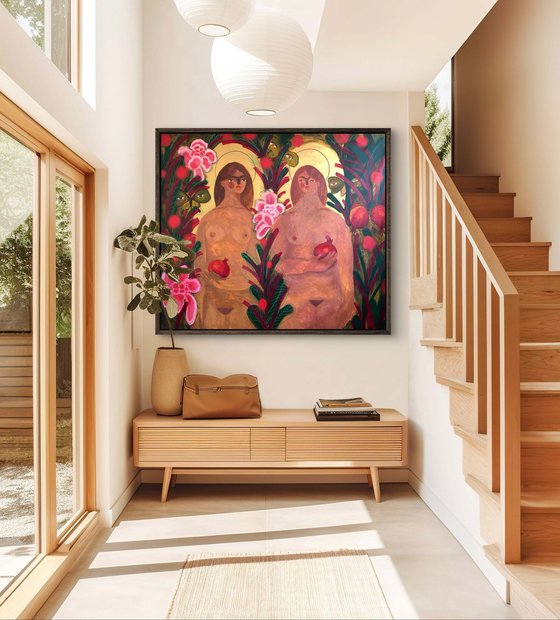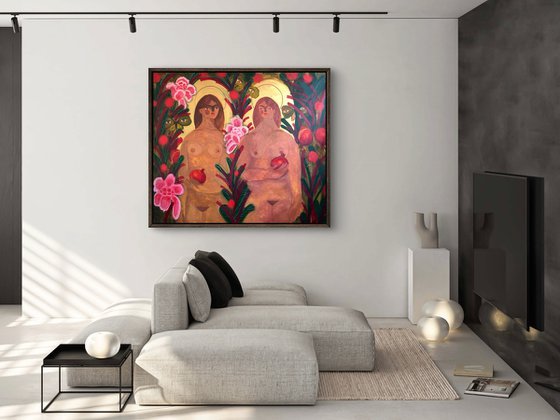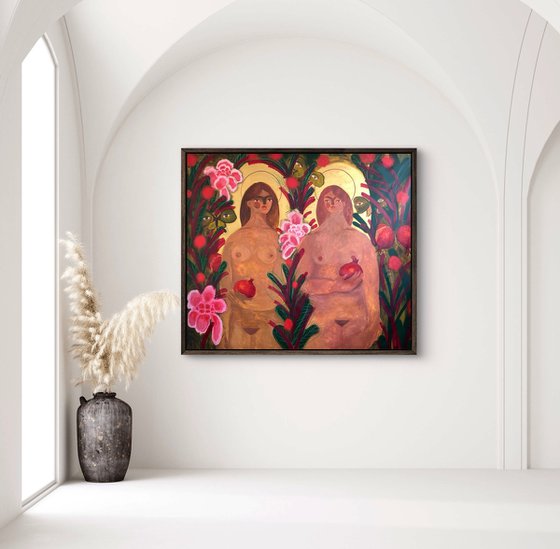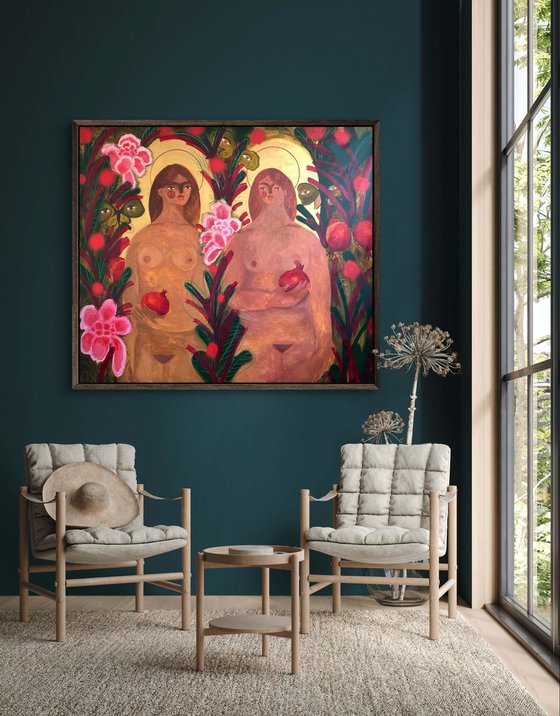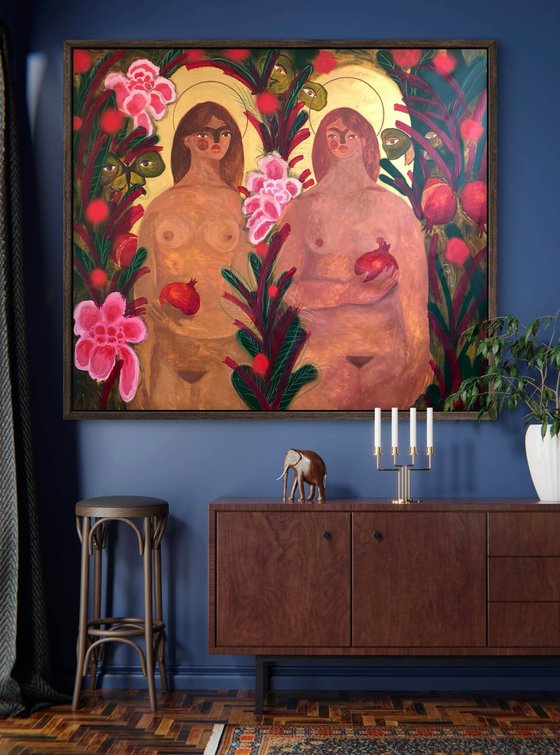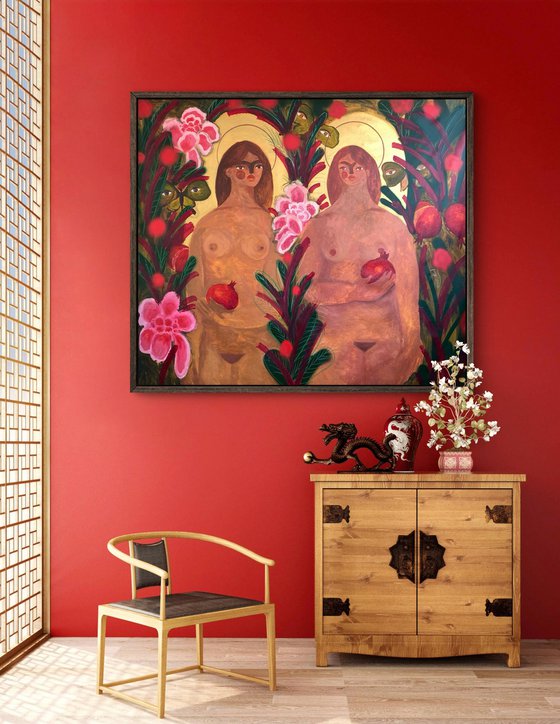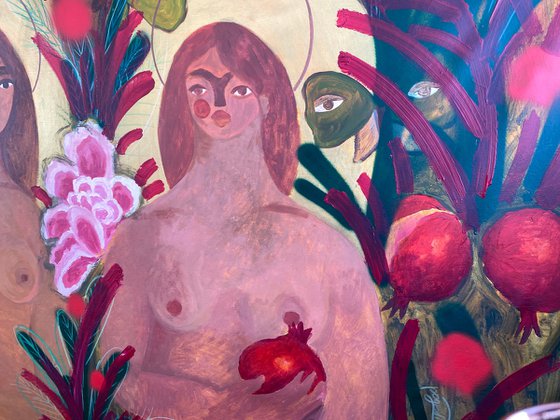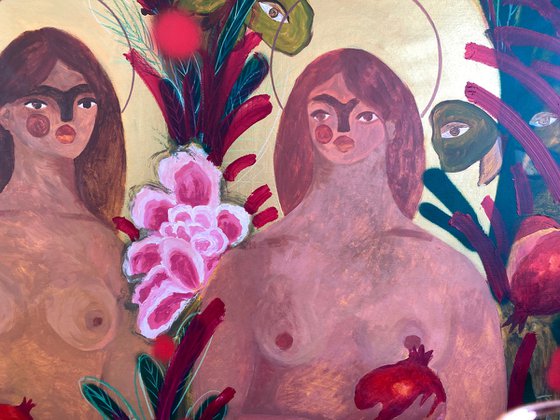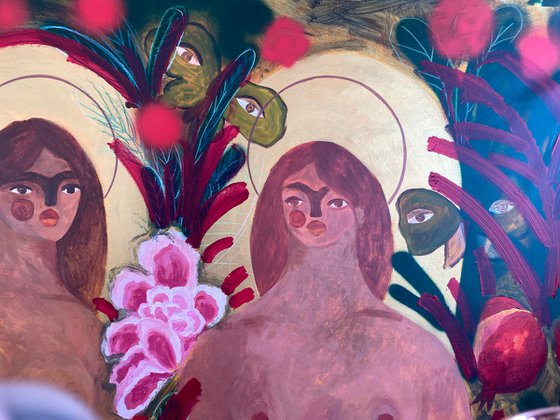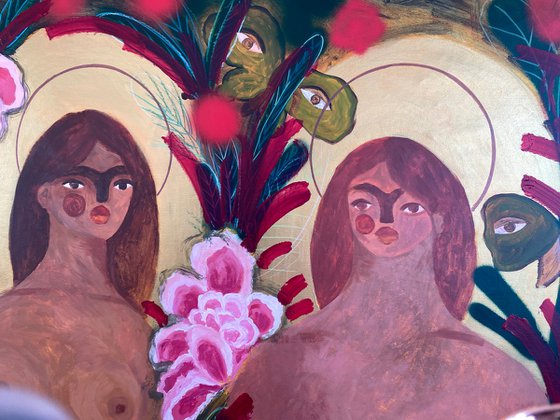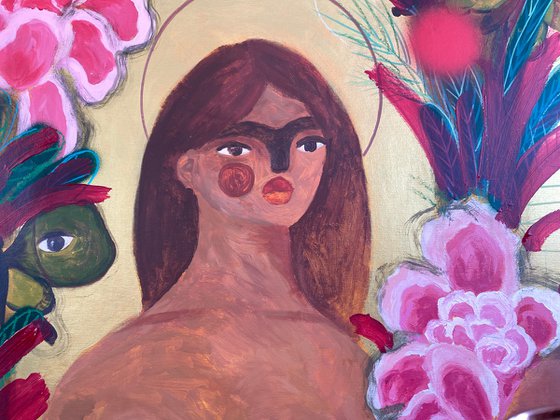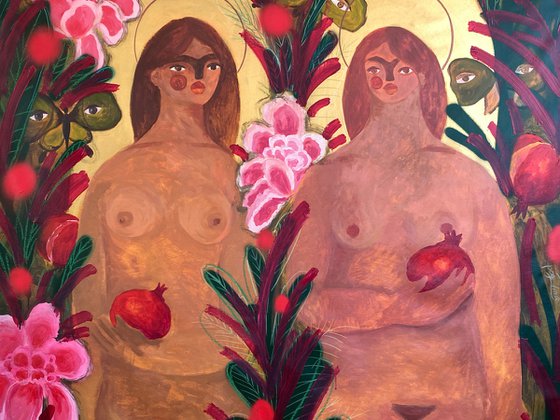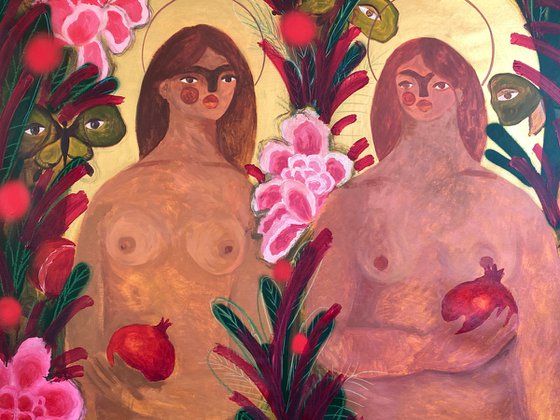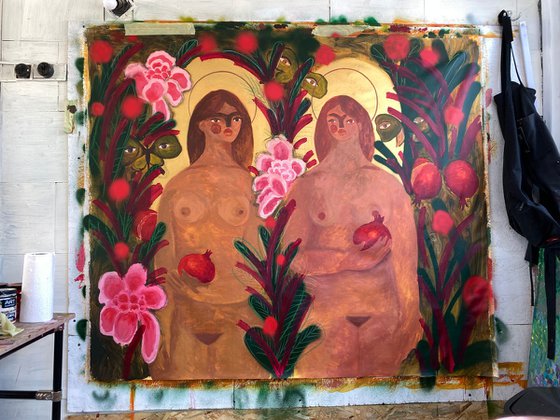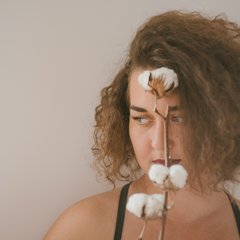- By medium
- By subject
- By budget
- Sales
- Gift cards
- Discover all art
- Artists
- Editors’ picks
- Ideas
Original artwork description:
ABOUT THE ARTWORK
"Our Strange Paradise" from the "Perichoresis" series explores the nature of paradise—not as a promised future or a distant memory, but as a complex, contradictory reality of the present. In this work, paradise is not a space of perfect purity but a place filled with choices, gazes, and hidden meanings.
The painting reveals a paradox: can one truly be free in a place where everything seems predetermined? Here, paradise is not without tension—it is not only about beauty and harmony but also about observation, self-awareness, and the acceptance of one’s body and history. It is a reflection on the idea that paradise is not the absence of suffering but the ability to see the world in all its complexity and contradictions while remaining within love.
The work raises the question: what makes a space sacred? Law, prohibition, or the realization of one’s own divinity? Here, paradise is not a place of flawlessness but a space where one can exist as they truly are, even if it feels strange, unconventional, or too bold.
PERICHORESIS SERIES
“Perichoresis” (ancient Greek περιχώρησις - “interpenetration”), a theological term meaning the mutual penetration of divine parts into each other, to describe a unique union that does not imply mixing or merging, but emphasizes an indivisible unity.
Daria explores the theme of new sexuality, deliberately choosing a term from theological treatises for her series of works.
With this gesture, she protests against the dictates of religion, the church’s manipulation and pessimization of human sexual manifestations and physicality, the false meanings and concepts with which religions have burdened, and instead of building true connections and bridges for man and God, they build walls.
“Perichoresis” for her is a beautiful and complex term that describes the fusion of the divine and the material. Having grown up in the Protestant tradition within an Orthodox society, Daria notes the common separation of sexuality from divinity in all these religions, while she sees sexuality as the clearest manifestation of divinity, beauty, and sublimity.
The artist notes that Christian culture has invested the image of the female body with a narrative of pornographic tension, while at the same time presenting paradise before the Fall as a sexual paradise, the Garden of earthly pleasures. For the artist, sexual paradise is a safe environment, complete trust, acceptance, the opportunity to open up and discover the Other, the opportunity to learn to be loved and to love.
Love is an environment where merging does not dissolve in another person, but on the contrary, strengthens the individuality of each and enriches each other.
Thus, the artist reminds that the division into the sublime and the low in love is artificial, and overcoming this division can make life more beautiful. The heroes of her paintings are immersed in the enigmatic space of love, and sometimes there are ironic scenes that balance the degree of sublimity.
Materials used:
Acrylic
Tags:
#figurative #girl #woman artworkOur strange paradise (2025) Acrylic painting
by Dasha Pogodina
4 Artist Reviews
£702.76
- Acrylic painting on Canvas
- One of a kind artwork
- Size: 150 x 130 x 2cm (unframed) / 150 x 130cm (actual image size)
- Signed on the front
- Style: Impressionistic
- Subject: People and portraits
Loading
Original artwork description
ABOUT THE ARTWORK
"Our Strange Paradise" from the "Perichoresis" series explores the nature of paradise—not as a promised future or a distant memory, but as a complex, contradictory reality of the present. In this work, paradise is not a space of perfect purity but a place filled with choices, gazes, and hidden meanings.
The painting reveals a paradox: can one truly be free in a place where everything seems predetermined? Here, paradise is not without tension—it is not only about beauty and harmony but also about observation, self-awareness, and the acceptance of one’s body and history. It is a reflection on the idea that paradise is not the absence of suffering but the ability to see the world in all its complexity and contradictions while remaining within love.
The work raises the question: what makes a space sacred? Law, prohibition, or the realization of one’s own divinity? Here, paradise is not a place of flawlessness but a space where one can exist as they truly are, even if it feels strange, unconventional, or too bold.
PERICHORESIS SERIES
“Perichoresis” (ancient Greek περιχώρησις - “interpenetration”), a theological term meaning the mutual penetration of divine parts into each other, to describe a unique union that does not imply mixing or merging, but emphasizes an indivisible unity.
Daria explores the theme of new sexuality, deliberately choosing a term from theological treatises for her series of works.
With this gesture, she protests against the dictates of religion, the church’s manipulation and pessimization of human sexual manifestations and physicality, the false meanings and concepts with which religions have burdened, and instead of building true connections and bridges for man and God, they build walls.
“Perichoresis” for her is a beautiful and complex term that describes the fusion of the divine and the material. Having grown up in the Protestant tradition within an Orthodox society, Daria notes the common separation of sexuality from divinity in all these religions, while she sees sexuality as the clearest manifestation of divinity, beauty, and sublimity.
The artist notes that Christian culture has invested the image of the female body with a narrative of pornographic tension, while at the same time presenting paradise before the Fall as a sexual paradise, the Garden of earthly pleasures. For the artist, sexual paradise is a safe environment, complete trust, acceptance, the opportunity to open up and discover the Other, the opportunity to learn to be loved and to love.
Love is an environment where merging does not dissolve in another person, but on the contrary, strengthens the individuality of each and enriches each other.
Thus, the artist reminds that the division into the sublime and the low in love is artificial, and overcoming this division can make life more beautiful. The heroes of her paintings are immersed in the enigmatic space of love, and sometimes there are ironic scenes that balance the degree of sublimity.
Materials used:
Acrylic
Tags:
#figurative #girl #woman artwork14 day money back guaranteeLearn more
